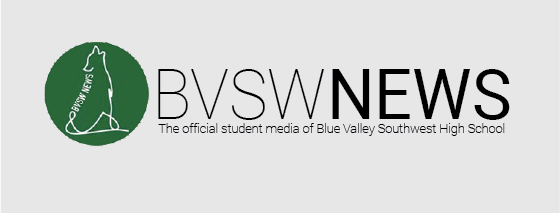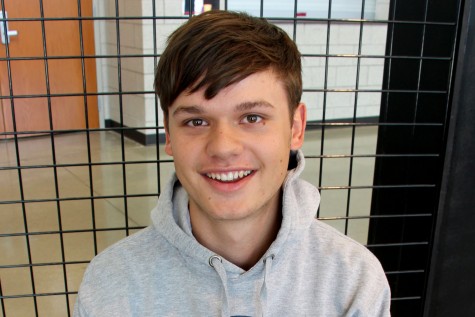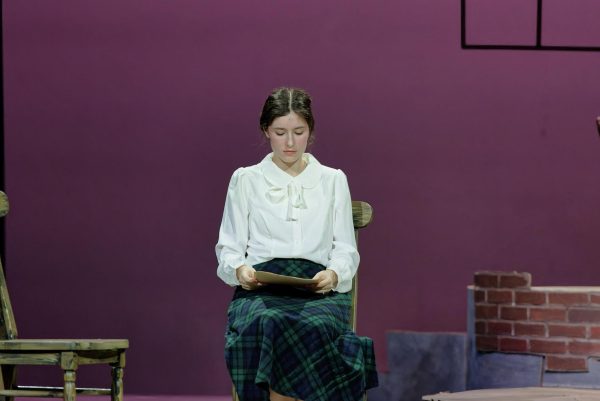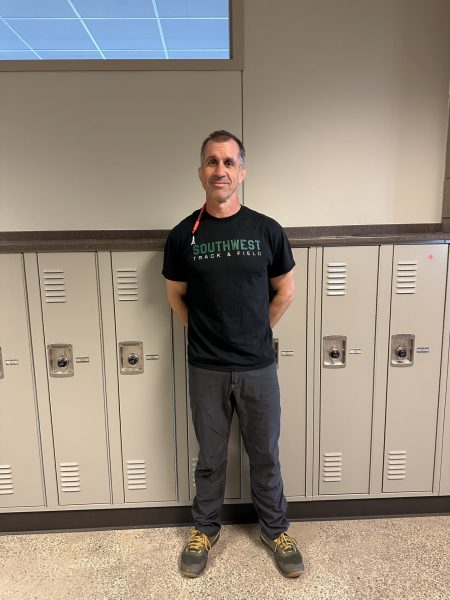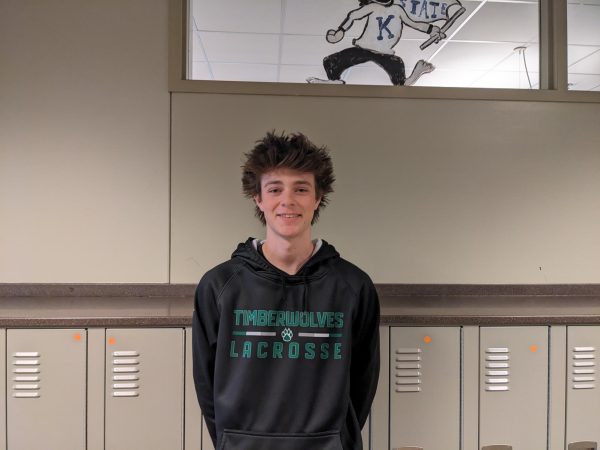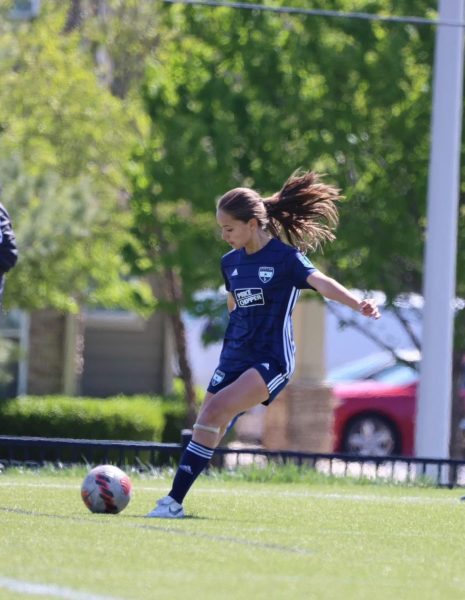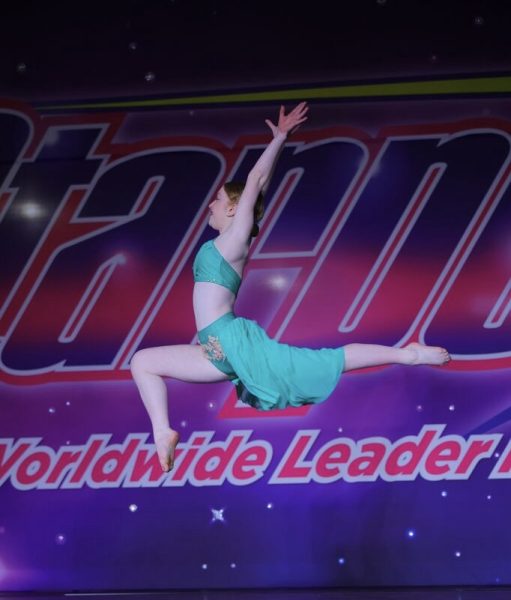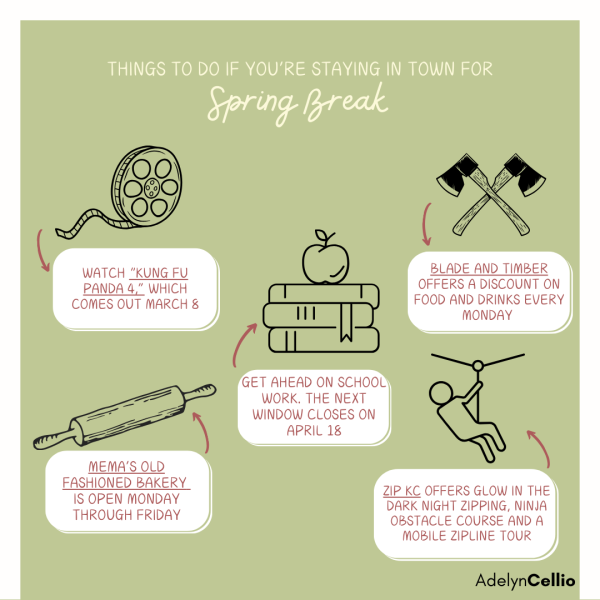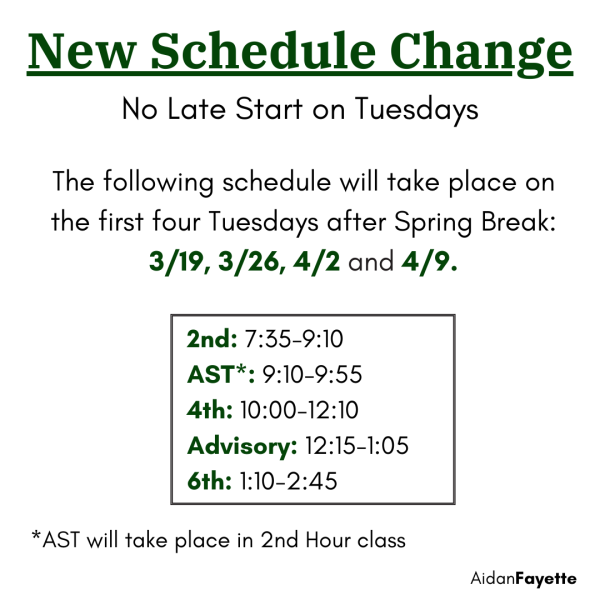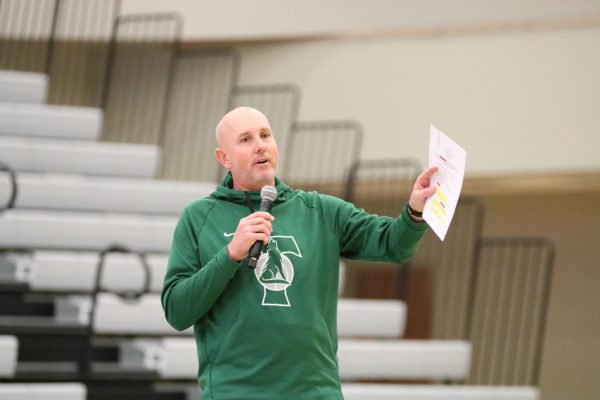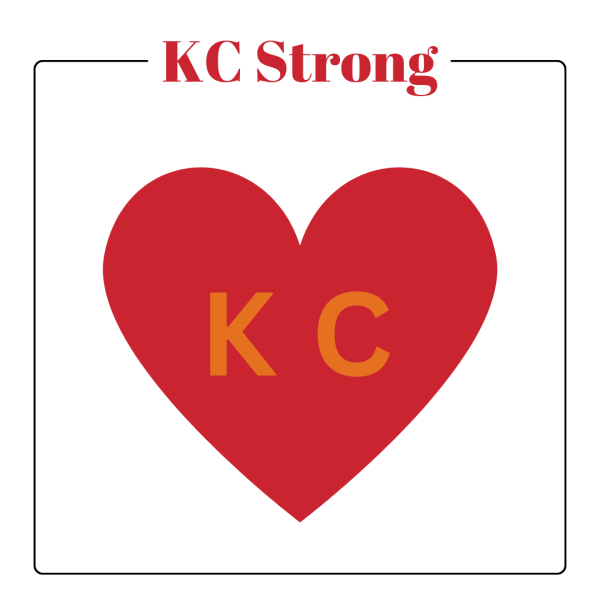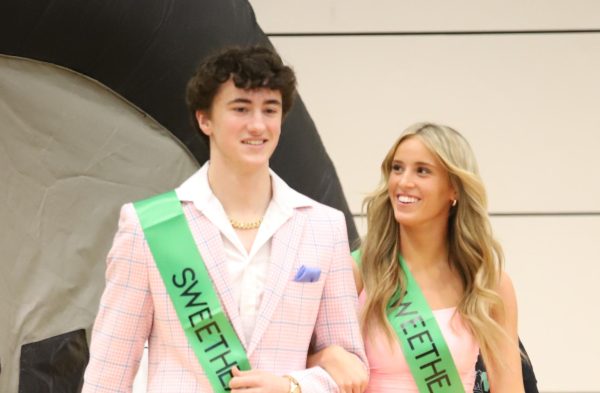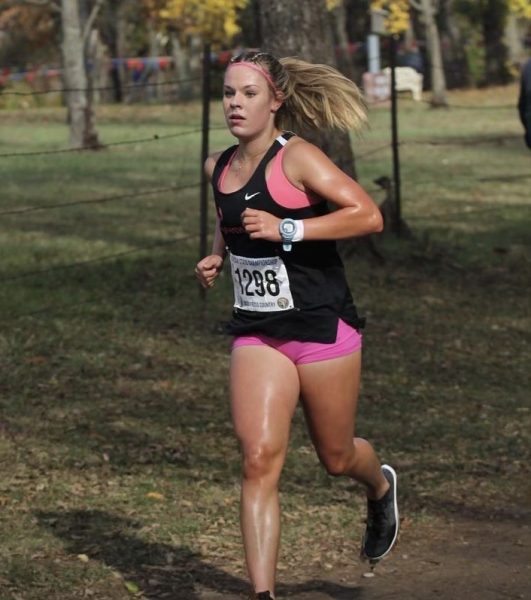DECA and FBLA cultivate students’ interest in business
Suit and tie on, senior Corbett Oliver is ready to go. Making up half of a duo, Oliver steps in front of judges set to hear a make-shift business plan. Oliver and his partner make up just one of the duos preparing to step into the business arena for a day. This is the world of a DECA student at a competition.
The acronym of DECA originates from Distributive Education Clubs of America. This is no longer the motto of the club, however the acronym stayed put. Now known as the “Association of Marketing Students,” the organization was founded in 1946, and its mission has remained the “preparation of emerging leaders and entrepreneurs.” Compiled of both high school and college chapters, DECA boasts over 215,000 members nationwide. One of its 3,500 high school branches makes its home at Southwest.
“Southwest has a strong presence in DECA,” Oliver said. “We routinely do very well in local competitions, and, last year, we sent a team to nationals.”
Oliver is fairly new to the DECA scene; however, he holds one of the leadership positions for the club. Oliver said being a part of DECA has provided him with invaluable skills that will help him in his future career.
“During competitions, we are required to think quickly, and along with the presentation aspects of role play, my leadership skills have grown,” Oliver said. “I’m planning on going into engineering, however my experiences in DECA have led me to consider a minor in business or marketing.”
A DECA competition involves two contests: a testing portion and a period of role play. In the role play contest, competitors’ problem-solving skills are put to to the test when they are given business scenarios and must create a solution to the presented problem. These sort of problems often encompass a wide range of business-related obstacles to simulate real predicaments in the field.
During the role-play portion, students are given a scenario based on the subject they chose to compete in. Then, they’re given 10 minutes to prepare before they present their ideas in front of judges.
“The role play segment of the competition has helped my public speaking skills tremendously,” Oliver said. “The challenge of the event itself forces me to sharpen my abilities to do well during the presentations.”
Competitions are judged accordingly by event. Judges review the competitors level of proficiency in a given area. This is done by listening to a role-play, grading an exam or sometimes assessing a case study.
The Kansas state competitions for DECA took place March 6 and 7. A portion of the competitors will be chosen to participate at the national competition in May. Senior Will Hawkins sees the state competitions as a chance to put southwest DECA on the map.
“Doing well would mean a lot to this program,” Hawkins said. “It would show that Southwest is rising in business competitions and the school’s club would get more recognition, and hopefully more members.”
Similar to DECA, Future Business Leaders of America (FBLA) aims to educate high schoolers and provide a peek into the business world. Though their mission statements have similar purposes and functions, FBLA and DECA have their differences in methods. DECA focuses on four components: finance, hospitality and tourism, business management and administration and marketing.
“DECA is almost strictly business coupled with verbal and presentation,” senior Jack Fiorella said. “FBLA is more concerned with the test taking portion for instance and expands on more things that are connected with business.
FBLA also consists of a written and presentation portion, but it’s more concerned with the testing portion and expands on aspects that are more connected with business. The tests may include a variety of topics, such as accounting or healthcare management.
“FBLA gives Southwest students a chance to learn more about business outside of the typical classroom environment,” Fiorella said. “It’s a club that gives you a chance to learn more about specific careers outside of school.”
These competitions often explore topical prompts and challenge students to use their business literacy to solve difficult issues. These issues may encompass a variety of business related fields.
In a recent competition, Fiorella said the students’ topic was emerging business issues, and they talked about the implications of jailbreaking phones. It required that Fiorella and his partner, senior Jay Patel, present both sides of the argument and conclude their own opinion on the subject.
“I liked the prompt we received because it allowed us to use our skills to try and solve a real-world issue facing society,” Fiorella said. “FBLA exposes us to these kinds of problems and encourages us to produce applicable solutions.”
Both DECA and FBLA give high school students a chance to explore potential careers. The clubs themeselves have become gateways to expoloration of professions
“If you go to college not knowing what you want to do you can spend years burning time and money,” Fiorella said. “If you’re given experience and exposure to things now you won’t have to waste your time later in life.”
Kansas state competition results
Landon Tasset – first place in Ad Campaign
Landon Tasset and Lexi Tarter – fourth in MTDM
Mitch Sutton and Jared Daniel – fifth in FTDM
Sneha Bhavanasi and Swetha Jasti- eighth in TTDM
Maddy Barns and Finn Murphy – tenth in HTDM
Corbett Oliver – third in Hospitality & Tourism exam
Mitch Sutton – tenth in Finance Cluster exam
Drew Havens and Will Hawkins – fourth in STDM
Adaleigh Emerson and Kathryn Venzon – sixth in STDM
